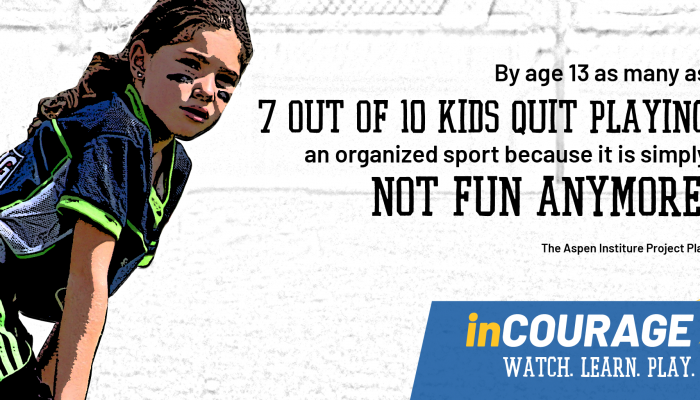The Aspen Institute held its fifth annual Project Play Summit earlier this month in Detroit, Michigan. I was lucky to join more than 500 thought leaders in the worlds of sports and health for two days of thought-provoking panels and breakout sessions. Panelists addressed many of the key issues in youth sports while also offering suggestions about how all of us can work to eliminate the negativity in our culture.
Many of the panelists discussed how the elements of fun and free play have all but been removed from youth sports. Our collective need to return to a culture where sports are for everyone regardless of skill, talent, disability, and economic means was also a frequent topic.
Out of all the phenomenal speakers Timothy Shriver, Chairman of Special Olympics, delivered by far the most powerful and impactful message at the conference. I was blown away by the compassion and emotional awareness in the conversation between Shriver and columnist David Brooks of The New York Times.
I was captivated by every word coming out of their mouths, because not only were they identifying problems, they were also offering actionable solutions. Speaking about sports as social fabric, they offered ways to improve the overall youth sports culture, and they were introducing concepts that could be applied to all aspects of society. I sincerely appreciated the aspects of the conversation which focused on sports for children with disabilities: we need to break down the barriers and celebrate all children and build a more unified world through the joy of sports.
The entire conference covered a lot of intriguing topics, including:
- When it’s only wins versus losses, we all lose: An intense focus on competition at the expense of fun destroys the beauty of sports for many children. The same idea applies to success. We need to remove the stigma that affects all children who aren’t superstar athletes. Plus, for some kids, sometimes just finishing the race is a monumental accomplishment that should be applauded and celebrated.
- Our kids’ health suffers from bad sports environments. When children are told they are not good enough, it ruins their morale. And that low morale has an impact on their mental health and their physical activity. According to the CDC, only 13 percent of children between the ages of 5-18 years old are getting the required amount of exercise.
- By changing the language we use in youth sports, we can change the culture. Seven-time NCAA champion gymnastics coach Valorie Kondos Field said, “Don’t use the word failure, it should never exist!” Positive reinforcement and encouragement are key here.

From The Aspen Institute: The 8 Plays from the Project Play summit. These are strategies for improving youth sports culture that connect to major touch points in the lives of every child.
- Ask kids what they want
- Free play
- Sports sampling
- In-town leagues
- Think small
- Development
- Training coaches
- Injury prevention

My biggest takeaway from the conference was that we desperately need agents of change in youth sports, and parents are uniquely positioned to be these change makers. In every capacity as parents we focus on our kids’ growth — social, emotional, physical, cognitive, mediation, and teamwork skills. We need to also focus on encouraging our children to have fun. This means that we adults need to become more sensible when it comes to matters involving our children and their sports. We need to encourage play and give these games back to our children to joyfully participate — without unnecessary adult interference.
And it’s not just on the parents. We need to establish an inclusive, welcoming culture where everyone belongs in sports. An example would be that while coaches need to work on skill development, practice structure, and how they are presenting the game to our children, they also need to work on team happiness, too.
Altogether, I think these all add up to this: we need to create a culture where everyone is valued and belongs, and where youth sports experiences function as a glue that binds everyone together.
Learn more. inCourage delivers research-based solutions for improving the culture of youth sports. Our engaging videos and informative educational resources are available for free to anyone who wants to create better communications and outcomes to keep kids happy, healthy and in the game.
We provide these tools for free because we believe there should be no barriers to accessing the tools we need to improve the culture of youth sports and keep more kids in the game.



